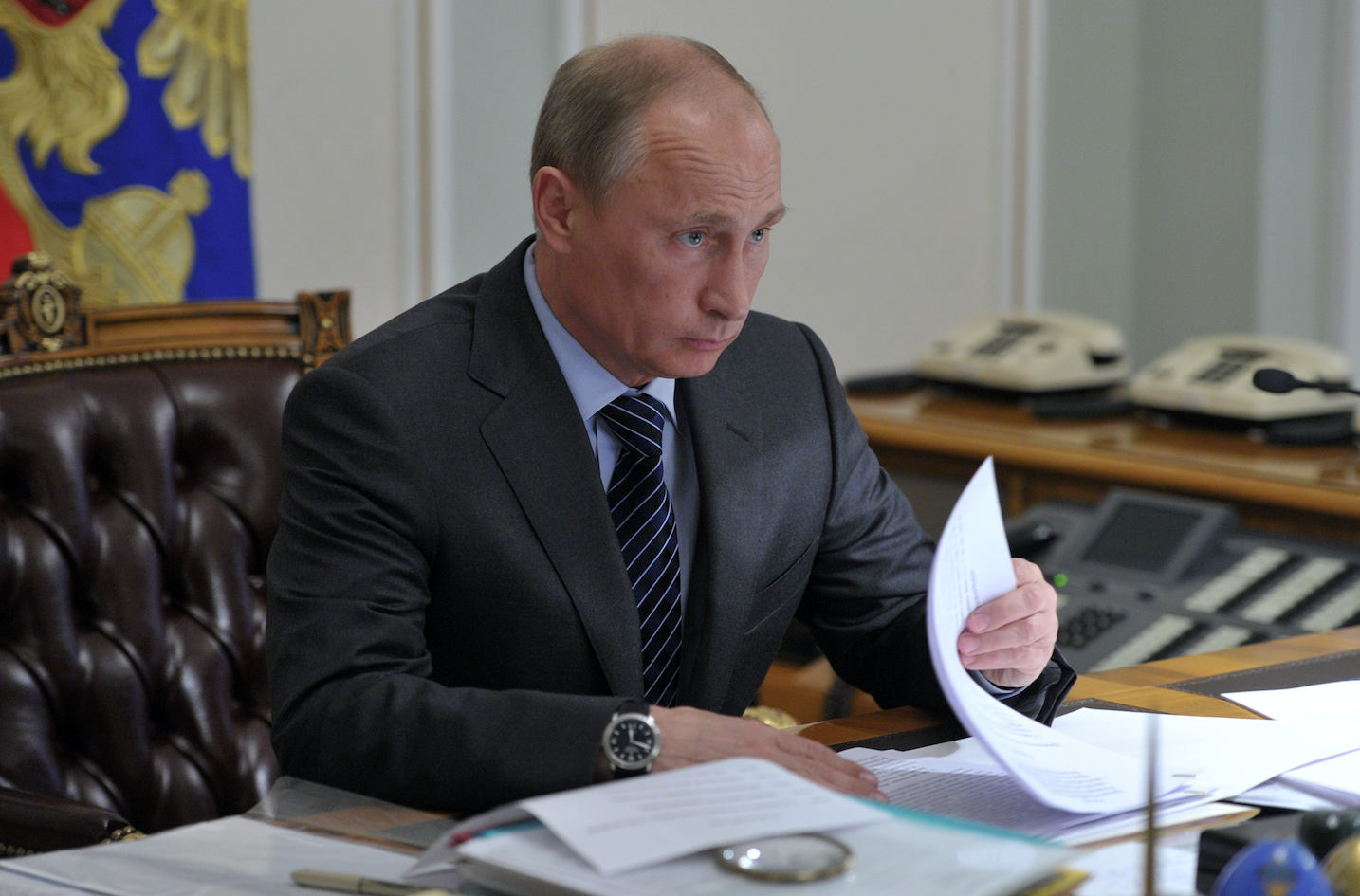
Vladimir Putin could turn out to be the big winner economically and diplomatically if the United States sticks to its pledge of no more sanction waivers for countries buying Iranian oil, a leading expert on the Middle East said on Monday.
With reduced choices of where to buy oil, China, Turkey, South Korea, Japan and others who had been granted waivers that end this week may soon be buying from Putin’s Russia, Michael Pregent, speaking at the Hudson Institute, said.
Moscow has been playing a steadily increasing role in Middle Eastern affairs as self-proclaimed “honest broker” since Putin came to power in 2000, and that involvement has only gained speed and military muscle since Russia’s intervention in Syria in 2015.
At the Washington, D.C., event, Anna Borshchevskaya of the Washington Institute for Near East Policy said Moscow’s interest in having access to the Eastern Mediterranean “is a centuries-old ideal.” The Soviet Union and now Russia maintains a naval base in Syria that is now also being used to coordinate its military activities with the Iranians in support of President Bashar al-Assad in the Syrian civil war.
Iran and Russia, long-time rivals, have “in Syria come to an unprecedented level of cooperation,” she added. Moscow has been providing air and fire support, some from the sea, and Iran has provided ground forces through its Iranian Revolutionary Guards and proxies from Hezbollah and Shiite militias in Iraq.
“What ties [Iran and Russia] together is anti-Americanism. Putin is very good at balancing things,” like cooperating with Tehran in the Syrian civil war while at the same time negotiating with Turkey, a NATO member. He also is maintaining friendly relations with Benjamin Netanyahu’s Israel and a number of Sunni Arab states, both opposed to Iran’s Shiite revolutionary regime.
As a warning to U.S. diplomats now and in the future, Borshchevskaya said “we often don’t look” at Russian soft power operating in the Middle East when Putin tries to influence events but think only in military terms of basing and exercising.
China, which has become a prominent player in the Middle East primarily through soft power in its One Belt/One Road initiative, is the country most likely to test the U.S. sanctions when the oil waiver ends. Beijing, despite signing an agreement in 2017 with Russia to step up energy imports, remains heavily dependent on oil from the region.
While trade talks between Beijing and Washington appear to be nearing a successful conclusion, “the more important question is what is the U.S. going to do” when China ignores the threat of sanctions and buys Iranian oil, Gordon Chang, the author of “Nuclear Showdown: North Korea Takes on the World,” said.
“Our policy is going to be reactive” because China sees itself as a great power and is willing to test American resolve on a host of issues in a variety of places. Examples of these tests already include North Korea and soon Iran, where Beijing flaunts the sanctions against trade with the two countries, organizations in them and some individuals.
What this translates to in the upcoming U.S. presidential race is, “no matter who wins,” China “is viewed as a malign actor” that needs to be checked. Chang cited the movement of more American naval assets to the Pacific from the Middle East and Mediterranean as demonstrating the shift in emphasis.
Likewise, Turkey, which borders Iran and Syria, is already testing the United States with the pending buy of a Russian air defense system, which the administration said would lead to the cancellation of the sale of F-35 Strike Lighting II aircraft. Turkey also may take another step away from the U.S. by buying oil from Tehran, Blaise Misztal, of the Hudson Institute, said.
Working with Russia and Iran, Turkey “is very interested in developments in what happens in northern Syria.” President Recep Tayyip Erdogan is seeking a buffer zone, patrolled by Turkish troops, to separate the area from Turkey and regions controlled by Kurdish forces fighting the Islamic State and a possible resettlement site for refugees.
Misztal said Turkey is now housing 4 million Syrian refugees.
But Ankara is also looking for oil, and since the Iranian nuclear agreement was reached, it has been legally buying from Tehran and growing further and further apart from the United States in its foreign policy.
In his view, “Iran is waiting for ‘maximum pressure’ to end,” allowing it sell petroleum globally and trying to help that along militarily.
Misztal noted Tehran recently sent senior naval officers to Moscow and Beijing to discuss possible exercises and continued exchanges with North Korea, likely over Pyongyang’s missile program but also possibly its nuclear weapons program.
Chang added, “scrape the paint off most Iranian missiles and they’re North Korean.”
The panel agreed that neither Russia or China want to see a nuclear-armed Iran and its new-found friends would not rush to its side in a showdown with the United States in the Persian Gulf.
That does not mean Moscow and Beijing won’t side with Tehran in many other cases, for their own reasons.
In the Kremlin’s case, “Russia doesn’t want a nuclear Iran. … What Russia really doesn’t want is a pro-American Iran,” Borshchevskaya said.





